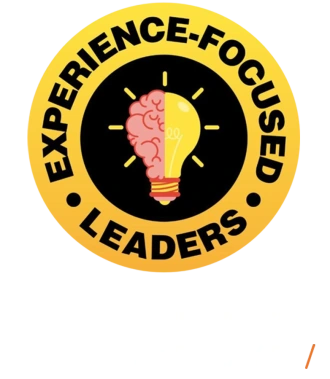Listen to the Podcast Episode on Your Favorite Platform

.svg.png)

Explaining the Art of High-Stakes Deals
.png)
I started peeling back the layer and understanding the things that were actually the Narnia level beneath the surface of a deal. And those are things that I wrote about in the book: intrigue, status, frame, frame control, time constraints. Those are the guiding elements in a deal you wouldn't be aware of unless somebody brought you into that world and showed you how they work. (Oren Klaff)
(00:00-09:24)
Oren Klaff shares his journey into the world of high-stakes deals and the transformative insights he gained from his experiences.
He recounts a pivotal moment when he observed a colleague effortlessly closing deals using unconventional tactics, sparking his curiosity to delve deeper into the hidden dynamics of negotiations. He discovered that beneath the surface of transactions lies a complex interplay of social dynamics, including intrigue, status and frame control, which profoundly influence outcomes.
What sets Oren Klaff's approach apart is its practicality and applicability to real-world scenarios. Unlike academic research that often focuses on controlled experiments with college students, Klaff's methodologies are tailored for seasoned professionals navigating the complexities of multimillion-dollar transactions.
.png)
Mastering Frame Control
.png)
Nobody enjoys coming to meetings late. They know it does not impress anybody. When people come to meetings late, you can just say, “My value system and my peer status are equal to yours.” You can have a billion dollars, but this is America. We don't value people by how much money they have. (Oren Klaff)
(09:24-16:34)
Alex Shevelenko dissects Klaff's presentation style, highlighting how subtle cues can profoundly influence perception.
Klaff elucidates the concept of status pings and symbols, emphasizing their role in signaling authority and value in mere milliseconds. He unveils his own tactics, including the strategic use of impressive backgrounds and technological setups, to create an aura of professionalism and competence.
The conversation delves into practical strategies for reframing interactions to assert dominance and command respect. Klaff shares anecdotes of challenging encounters with billionaires and family offices, demonstrating how simple yet assertive statements can shift power dynamics in one's favor.
.png)

Strategies for a Compelling Pitch
.png)
What we find is that the status comes from treating the counterparty as a peer and not supplicating to them, not saying, “Just because you have money, you get to order us around.” (Oren Klaff)
(16:34-25:19)
Oren Klaff talks about how important it is to establish status and expertise early in the conversation, setting the stage for a successful interaction.
By treating the counterparty as a peer and demonstrating discernment in selecting partners, Klaff asserts authority and instills confidence in the value proposition. Moreover, it's significant to showcase deep expertise from the outset, rather than waiting until the end of the meeting.
Drawing parallels to technology sales, Alex Shevelenko highlights the power of social proof and third-party validation in bolstering credibility. Klaff reminds about the importance of framing the sale within the context of shifting market dynamics, illustrating how understanding and articulating these changes can enhance perceived value.
Ultimately, Klaff dispels the myth of the "perfect close", advocating instead for a comprehensive approach that addresses buyer concerns and aligns with their evolving needs. By laying a strong foundation and navigating the conversation with finesse, sales professionals can elevate their game and increase their chances of success in securing deals.
.png)
Crafting Customer-Centric Pitches in a Changing World
.png)
Why do you start every pitch with moving tectonic plates? One is because change is the only thing that the human mind requires itself to pay attention to. Movement and change are built into the mechanics of the human mind and it causes it to instantly stop thinking about everything else and focus on movement and change. So if you say the world is changing, as I said in the book, “Winter is coming”, if you start talking to someone about dramatic weather, they will stop everything they're doing and want to collect the information you have about the storm, rain, heat wave, dust storm. (Oren Klaff)
(25:19-30:21)
Oren Klaff talks about initiating pitches with a focus on dramatic change, leveraging metaphors such as moving tectonic plates to engage the audience's primitive instincts and emphasize the urgency of the situation. By highlighting the transformative forces reshaping industries, Klaff asserts the need for attention and adaptation in a rapidly evolving landscape.
Alex Shevelenko discusses transitioning from me-centric to customer-centric communication, emphasizing the value proposition for the audience from the outset. This approach captures attention and fosters engagement by addressing the audience's immediate needs and concerns.
Klaff further elaborates on the power of framing pitches as solutions to the audience's problems, presenting a metaphorical "magic box" containing everything needed to address their challenges.
.png)

The concept of the "intrigue frame"
.png)
Once you've seen three, four, five presentations, documents, products made by AI, you no longer trust single-point documents to be valuable. Because you can clearly see the fingerprints of AI all over it, and so you know that it was made from three-year-old Wikipedia. You know the value of that content is near zero because it doesn't have a current human insight in it. (Oren Klaff)
(30:21-39:22)
Oren Klaff recommends starting meetings by highlighting the benefits for the customer, rather than delving into product details right away. He introduces the concept of the "intrigue frame", which creates curiosity and leaves listeners eager for more information.
Furthermore, Klaff reveals his strategy of withholding crucial details until commitment is secured, creating a sense of urgency and excitement. By doing so, he keeps audiences engaged and motivated to learn more, leading to more successful outcomes.
.png)
Oren Klaff's Guide to Winning Pitches
.png)
1999 completely wiped out Xerox, right? Do you know what Xerox does today? Not me either. So who cares? Nobody. From 1999 to 2008, it was Blackberry and everything like that. And then content moved to, obviously, the iPhone. And then Dropbox. Now we're seeing content in 2010 was completely transformed. Today we're making the transition into the fifth generation of content. (Oren Klaff)
(39:22-48:52)
The speakers chat about the dangers of relying too much on AI-generated content, stressing the importance of injecting human context to maintain trust. Klaff brings real-world examples from different industries, showing how tech advancements are shaking things up.
The conversation then turns to the power of providing structural insights into an industry, which Klaff believes can forge strong bonds with potential clients. By helping folks see the bigger picture and offering clarity on where things are headed, businesses can build trust and drive collaboration.
.png)

Oren Klaff's Masterclass on Value and Scale
.png)
Obviously, work with RELAYTO Content Experience Platform. I'm very impressed by it. I use the platform and I love it. That's why I was able to talk about it in this way. I think it satisfies the needs going forward for people to see video documents in context from a trusted source. So I like it. I recommend you use it. (Oren Klaff)
(48:52-58:05)
Oren Klaff talks about the importance of one's worth in the market. Rather than just delivering value, he stresses that professionals are the value themselves, armed with their unique experiences and problem-solving abilities.
The conversation unfolds to reveal Klaff's knack for framing situations in a way that compels attention and action. He illustrates this with anecdotes, highlighting the significance of creating urgency without resorting to pushy sales tactics.
As the discussion progresses, the focus shifts to the challenge of replicating Klaff's conversational prowess in digital interactions. Klaff shares his approach, outlining a strategic blend of insight and intrigue to engage potential clients effectively, even in remote settings.
.png)
Check the the episode's Transcript (AI-generated) HERE.
Other Episodes

Godard Abel | CEO of G2
S 01 | Ep 6 Where You Go for Software: Reach Your Peak


Dean Stocker | CEO of Alteryx
S 01 | Ep 8 Turning Your Customers Into Your Biggest Champions


Peter Fader | Co-Founder of ThetaCLV
S 01 | Ep 10 Turning Your Marketing Into Dollars

Author

Experience-focused Leaders is the #1 Multimedia Podcast! We talk to senior business & tech leaders about the experiences that move forward organizations, customers and society at large. True to form, we mix audio, video, web and eBook formats to turn these authentic conversations into personalized nuggets you'll remember & use.



.png)
